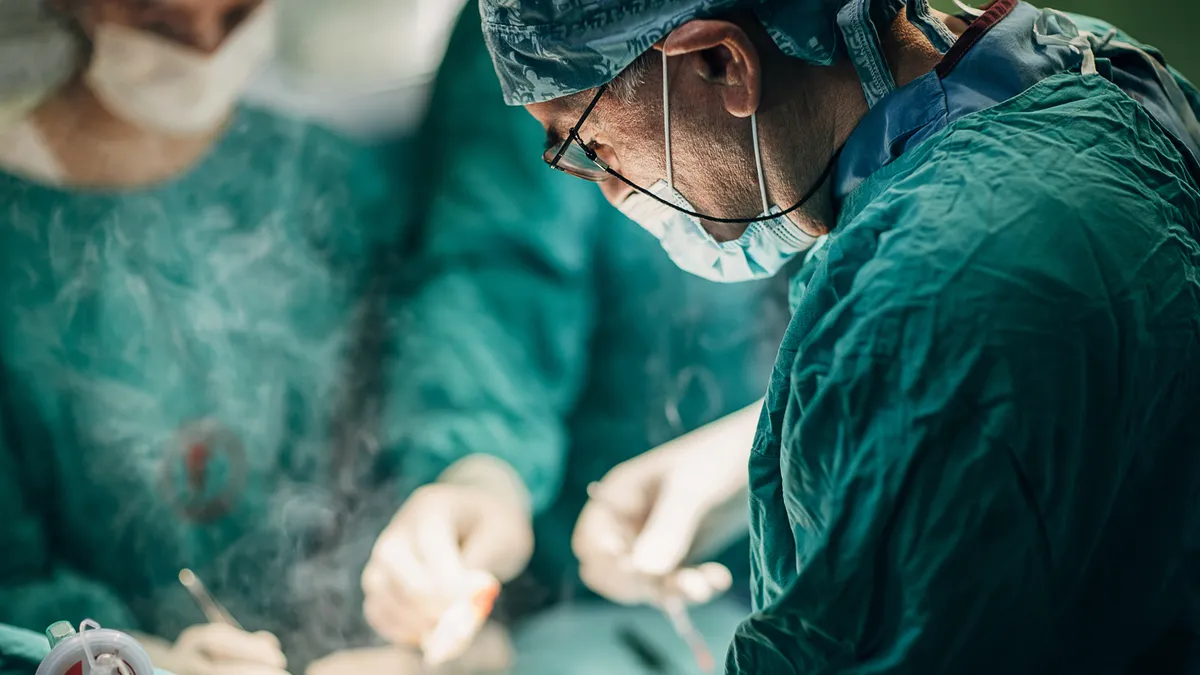Dive Brief:
- Hospital staff shortages and supply-chain disruption limited procedure volume growth in the third quarter, suggesting that the challenges will again affect medtech financial results.
- That is the conclusion of a Stifel survey of 150 U.S. surgeons working in interventional cardiology, general surgery and orthopedics. The interventional cardiologists gave the most pessimistic responses, reporting that they performed fewer transcatheter aortic valve replacement (TAVR) procedures than in the second quarter.
- All three groups of physicians expect volumes to increase in the fourth quarter even as the recovery may be gradual. More than 40% of the respondents expect staffing to remain disrupted until 2024 or later.
Dive Insight:
Optimism that procedure volumes would rebound as the U.S. exited the acute phase of the COIVD-19 pandemic have been stymied by ongoing hospital staffing and supply-chain issues. The Stifel survey sought to understand both of the pressures by polling surgeons.
Most of the surgeons said staffing limited procedure volume growth in the third quarter. The pressures appear to have been most acute in interventional cardiology, where 62% of respondents reported constraints on growth, and lightest in orthopedics, where 54% reported disruption. Only orthopedic and general surgeons reported procedure growth in the third quarter.
With 78% of interventional cardiologists also reporting supply-chain pressures versus 62% of their peers in the two other areas, the results signal the sector continues to face significant barriers to growth. The reported quarter-on-quarter drop in TAVR procedures may weigh on the results of Edwards Lifesciences, which has struggled to regain momentum as pandemic pressures have eased.
The survey suggests the situation will improve in the fourth quarter with TAVR surgeons joining their peers in other specialties in predicting growth over the final three months of 2022. The number of robotic procedures also is forecast to rise sequentially, although 20% of general surgeons added said that spending on Intuitive Surgical’s Da Vinci robotic surgical system is constrained.
A full recovery from staffing problems probably is more than one year away to many of the surveyed surgeons, with 40% predicting it will not return to normal until at least 2024. The analysts note that the finding “could support investor concerns that current 2023 consensus numbers are too high.”












